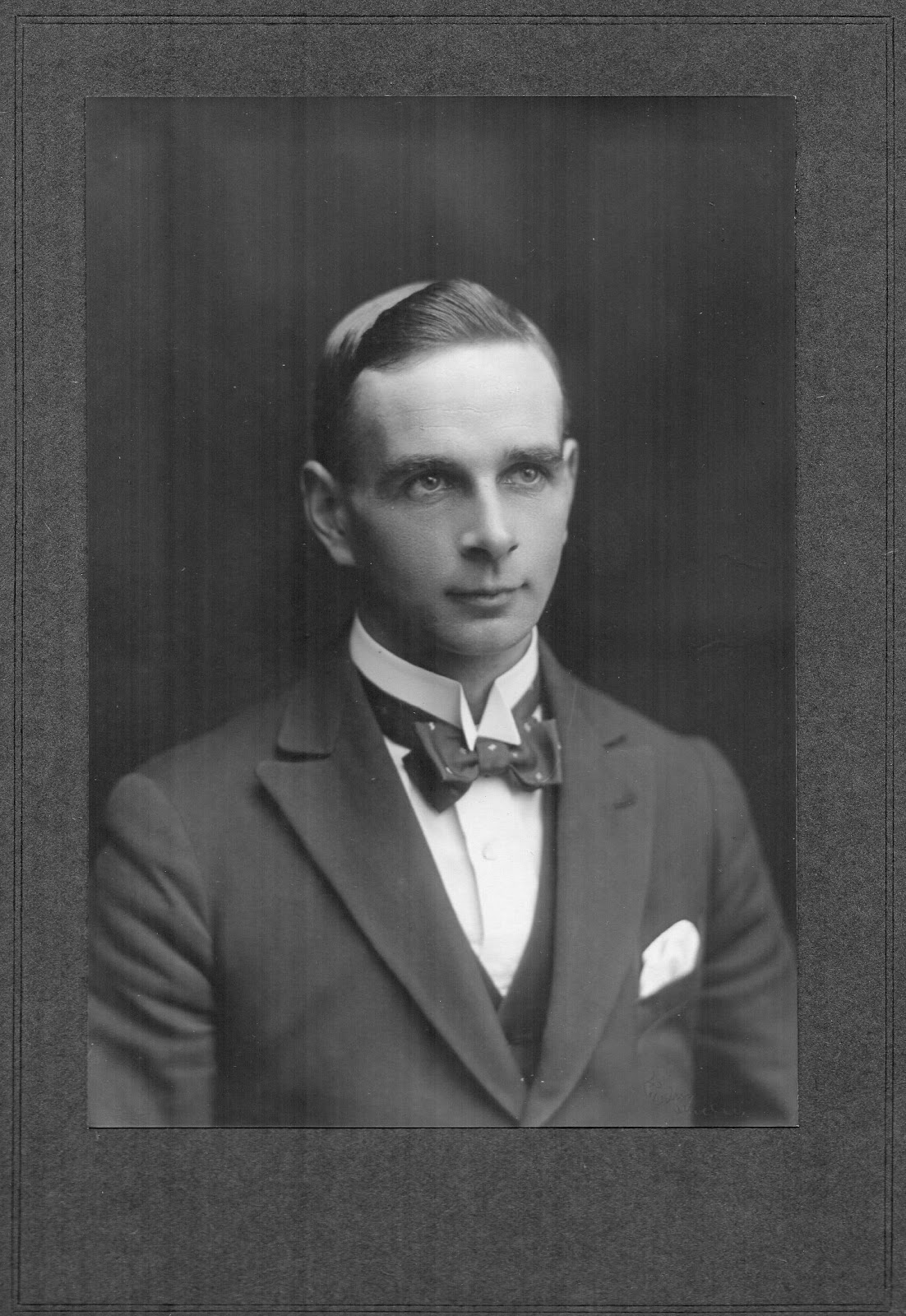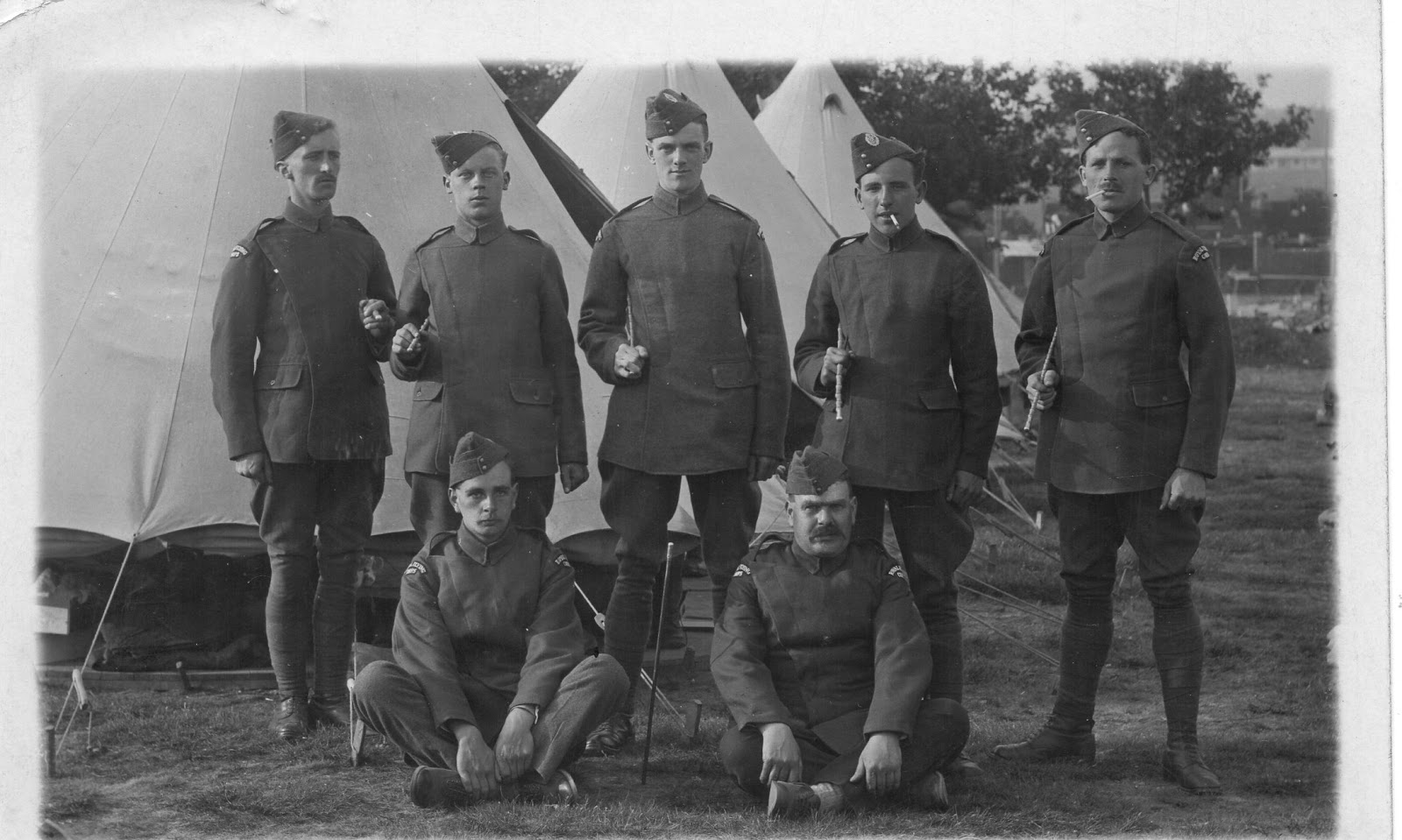The final part...
KINGS LYNN (1912-war service)
At Kings Lynn we were met by Alfred Jethrope[?], owner of a larger drapery and furnishing store and pleasantly installed in our home at 30 London Rd. It was decided that I must find a job and again with Mr Rigby's help, I enlisted the services of Truman and Knightley, scholastic agents and through them applied for a teaching post at Wimbledon Collegiate School, headmaster Mr Henry Fothergill Redman, a boys preparatory school. He ran it with his sister Annie ? Mary, a typical "old maid" with a heart of gold. It was a small school, about two dozen boys, whose parents knew Mr Redman and esteemed him highly, as I think did everyone who got to know him. I was to have time to study and went to classes in chemistry and physics at Battersea Polytechnic, riding to and fro on an old bicycle given me by Mr Hoare. This time, 1915, I got my Inter. B.Sc. and proceeded towards my final. I went and made the acquaintance of Rev Walter Sacket who was minister at Worple Rd Church carrying a terrible personal load - his eldest son was dying slowly but inexorably of tuberculosis. I was warned that in London I would get very few preaching appointment but father made up for it, glad of my help in the holidays.
So Inter. B.Sc. would seem to be the second year; interim or intermediate? Pretty sure the year was 1914, as he goes on to talk about war breaking out - still insisting it is 1915!
I don't think I was a very successful teacher, finding it difficult to come down to the pupils' level but I rubbed along, doing as well as I could, whatever I was asked to do, including teaching them football about which my general knowledge was very meagre and my practical experience nil! We usually had one or two French boys whose English wanted polishing and from I acquired a direct knowledge of French ways and customs. More interesting were two Greek youths, sons of shipowners in Greece, Menas Rethymnis and Constantine Voumarlinopolous (?spelling) to whom I tried trigonometry with the aid of a home made theodolite. I met, quite casually, Menas some years later in the Piccadilly tube. He was undoubtedly very pleased to see me and be remembered by me.
We, the family were on holiday at Gorleston when war broke out on Aug 4, 1915 [yes, it actually say 1915]. I well remember it. Father and I had gone into Gt Yarmouth to hear a concert by the Grenadier Guards. We expected it would be cancelled as it was understood that the band had to return to headquarters immediately. However, there was no train for a couple of hours and they played from about 6:30 - 7:30, ending up with their regimental march The British Grenadiers. It was thrilling to hear it and remember that in a few days time they would actually right in the warfare.
While the holiday lasted I made very frequent excursions to the nearby newsagent to read the latest newstelegrams. There were many and all bad; the Huns were sweeping all before them. It was at this period that the rumour that 250,000 Russians had passed thro' Peterborough on their way to the "front". It came from Mr Prye our local postmaster and was accepted - dare I saw without suspicion!
So back to school. In February with Mr Redman's cognisance I joined the London University O.T.C. [Officer Training Corps]
So I guess this was February 1915?
Four months later I was convinced I was never cut out to be an infantry officer and on 9th June I enlisted in the R.F.C. [Royal Flying Corps] Actually it was not quite as simple as that: you had to enlist with a trade qualification. So I got an O.T.C. acquaintance to let me ride (I had a driving license) round Wimbledon Common on his motor bike and he gave me a certificate that I could ride one. The recruiting staff at Scotland Yard raised no awkward questions, gave me a railway voucher for a single ticket to Farnborough (North) and left me to amuse myself until there was a train from Waterloo. In the late afternoon I reported at the Recruits Depot in S. Farnborough to a one-armed corporal. The succeeding arrangements did not impress themselves very clearly on my memory but I do recall, all dressed up in my new double breasted R.F.C. uniform, taking a certificate of competence from the O.T.C. (for what, I don't know) to huge[?] flight sergeant Allard and after clicking my heels asking if it would be of any service to me. "Come into the front squad at first parade tomorrow morning". So I was spared a tedious progress through four of five squads. F/s Allard had been a Grenadier Guardsman and taught their drill with funny little clicks in it that I never could learn. The volunteers were called to train a lorry drivers, This seemed a good chance for me but soon found I had not the physical strength for the job. For instance I had to brace myself against the back of the driver's seat to push the clutch down and was rather relived when I was called out for posting. This I nearly missed: an inoculation against typhoid made me quite feverish. I assured the R.S.M. [Regimental Sergeant Major] that I would be alright by the morrow and the posting went through. It was to 5th Wing whose H.Q. were in Gosport. We arrived there only to be told that we were for No 14 Squadron, then stationed at Hounslow Heath, so we stayed overnight in Fort Grange and made a leisurely journey to London. That was the advantage of being led by an older soldier. I think it must have been a Friday because he said there would be no weekend leave from Hounslow so we would take our time getting there! We duly reported there and on the Monday morning paraded for work. Having no specific instructions I went with the majority and was told to learn some rigging i.e. how to splice a wire [?]rope. This went on for some days our only instructions being "If the C.O. [commanding Officer] comes in be doing something." A week fed me up and I applied to learn "rigging" properly. This stirred up the mud and I was roped into my proper place among the motor cyclists.
And that is where it ends.
We will, however, conclude, with a postcard. It looks as though the photo on the front is of him, lower left. We have several of these custom postcards; I was not aware that was even a thing. He was keen on photography, and I guess he produced them himself, but doing so in a army camp about to go to war cannot have been easy.
Just a line to say I leave Farnborough tomorrow (Saturday) and go to Gosport as a motor cyclist.Will write as soon as possible.Love to allBernard.
The address is Rev J. G. Benson, 30 London Rd, Kings Lynn, Norfolk. The postmark is dated 2/Jul/15.
We believe he did work as a dispatch rider for about a year in France - I suspect that is why he noted earlier "I acquired a direct knowledge of French ways and customs". He was later reassigned as a photographer or some related role, undoubtedly because he had some knowledge of photograph, which would have been very rare at the time, plus chemistry too perhaps. At the start of the war, they were still using sketches, rather than photos!






No comments:
Post a Comment